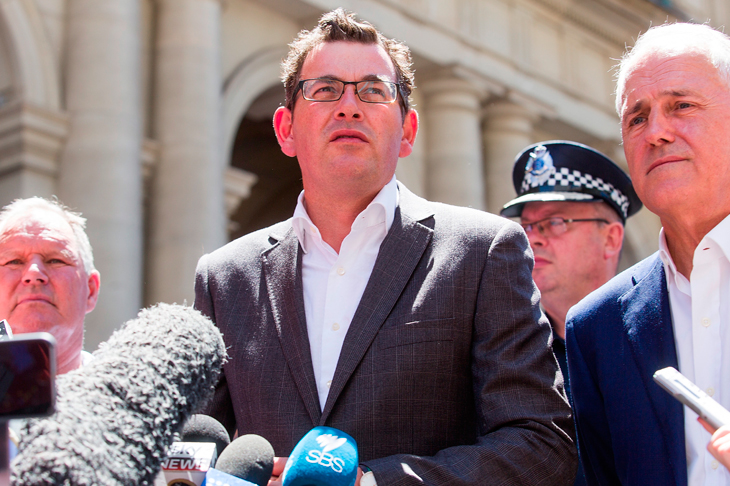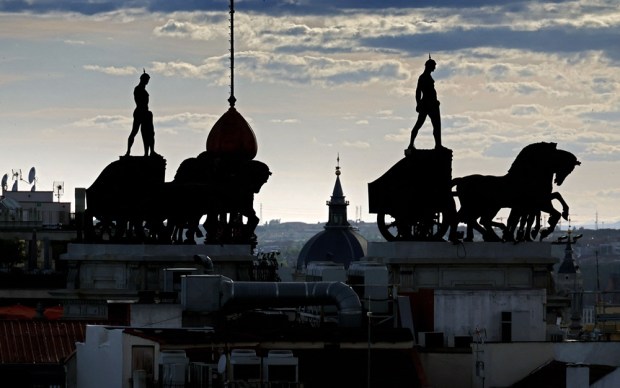A few weeks ago I told you about two particularly nasty and brutal attacks on our local jewelry store in Melbourne by armed thieves ‘of African appearance’. But now we have had a whole series of serious crimes that have rocked Melbourne and cast grave doubt on the traditional notion that the city is some sort of peaceful Athens of the south where we divide our time between trips to the art galleries, comedy festivals and the grand prix and drinking caffe latte. In fact, on recent evidence, Melbourne has become a dangerous and violent place. Peoples’ sense of security and safety has steadily eroded to the point where it is now virtually non-existent. The succession of home invasions, carjacking, murders and prison breaks just seems to continue unabated. And although I do not want to be cast as the angry old man complaining about the youth of today, there has been continuous trouble in the youth justice system with riots, break outs and serious crimes committed on the run. As for the public reaction, to put it as mildly as possible, both the work of the police in preventing these outrages and finding the perpetrators and the work of the courts in punishing them and deterring others, shows scope for improvement. The police are prevented from finding miscreants of African appearance for fear of not only being accused of racial profiling, but of paying out large sums in damages, which they have had to do. The work of the courts in handing out suitable punishment can best be judged by the community’s reaction: universal condemnation for being too lenient and increasing concern at the ease with which hardened criminals can obtain bail, commit further crimes, be given bail again, parole just round the corner.
The most horrific crime of this recent wave has been the drug-induced rampage by a man who barreled his car through crowds of lunch-time shoppers in the Bourke Street Mall, mowing pedestrians down like ten-pins as he drove along the footpath, killing six people and injuring many more. It ripped Melbourne apart, especially the stories and photos of dead and maimed children who had done nothing but go shopping with their parents. It also inspired the best in Melbourne, as city workers leapt in to help with first aid and comforted the injured and bereaved.
But sadly, the tears, the memorials of flowers, bereavement cards and teddy bears have not been matched with an equal appreciation of how much the so-called justice system has failed and how urgent the need to do something about it. Horrific as the Bourke Street massacre was, the official response has been predictable and like the re-run of an old movie. We started off with the poor benighted Premier, Daniel Andrews, reciting that time-honoured mantra that governments use when they want to pretend they are not responsible for a monumental failure to do their job and resort to pulling the wool over their citizens’ eyes: ‘This will never be allowed to happen again.’ We all know that it will happen again, because we will not face up to the extreme action that is required to prevent it. The next ritual was another old favourite: appoint an inquiry by a retired judge to show you are active and busy and hope that, by the time the report comes in, the heat will have gone out of the issue. Finally, when public outrage reaches boiling point, the police come in with the ace card: there were problems, and we are sorry for them, but if only the government had given us more resources, we could have done better.
Then the ghastly failures by those in authority start to seep out one by one, as they did in this case. Item one: my sources tell me that the police had given a warning to the civic authorities that the Bourke Street Mall was an open invitation for a drive-through terrorist attack of the sort we have seen in Berlin and Nice and that it could be stopped only by bollards at strategic points. Nothing was done, then or since. Item two: the murderer had just been allowed out on bail on charges including violence and carjacking before he went on his latest rampage. Item three: the bail was granted not by a court or a magistrate, but by an honorary bail justice, as archaic a post as the Sherriff of Nottingham and appropriately surviving only in Victoria. Item four: did the police oppose bail? If so, what did they tell the bail justice about the accused man’s violent past? And why are the police so coy about releasing details of that advice. Item five: the police had been chasing the offender through the inner suburbs for several hours, but abandoned the chase several times and had not tried to ram the car at all. Why? Too dangerous; someone might get hurt, which must be immense comfort to those who lost loved ones in the rampage. But then the real reason came to the fore: the police had been directed that in car pursuits, ‘Time is on your side’. It sums up the whole process: take your time. And no ramming.
But you should not feel entirely alienated from this totally inadequate process. You have an integral part to play in it, namely paying for it. You pay for the police and the myriad emergency services, the prosecution and defence lawyers, the courts, lawyers and the court again for the inevitable appeal, the retrial after the stuff-ups, the prison services and the damages at the end, although the extent of your generosity must remain a secret.
What then are your proposals, I hear you say. No bail and no parole for offences involving violence; abolish bail justices; unlimited police power to stop getaway cars; bollards in big crowd areas; shorter trials with no gobbledygook; and tougher penalties in all cases.
Got something to add? Join the discussion and comment below.
Get 10 issues for just $10
Subscribe to The Spectator Australia today for the next 10 magazine issues, plus full online access, for just $10.
You might disagree with half of it, but you’ll enjoy reading all of it. Try your first month for free, then just $2 a week for the remainder of your first year.















Comments
Don't miss out
Join the conversation with other Spectator Australia readers. Subscribe to leave a comment.
SUBSCRIBEAlready a subscriber? Log in